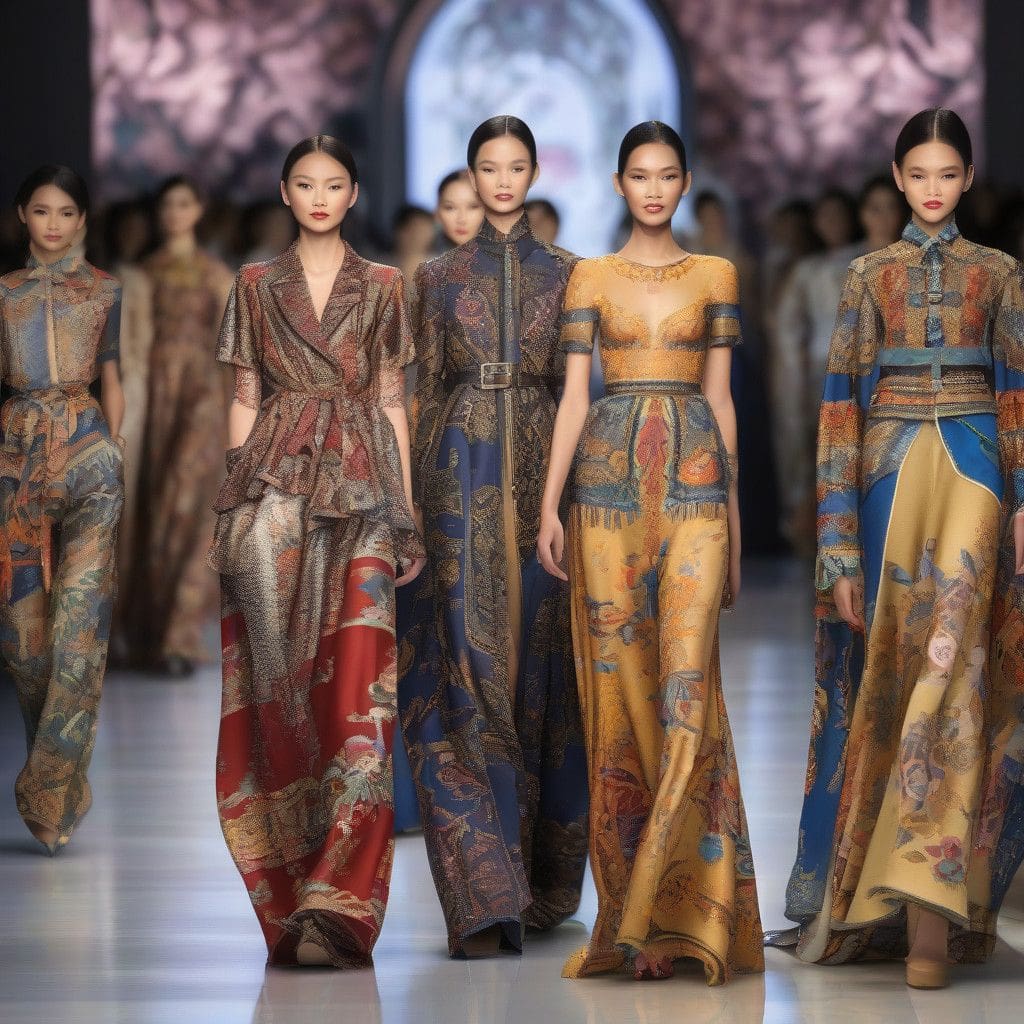Jakarta Fashion Week, a cornerstone event for the fashion industry in Southeast Asia, took place from October 21 to 27, 2024. This year’s showcase was particularly significant as it focused on reinterpreting Indonesia’s rich textile heritage through innovative design. The event brought together a diverse group of designers, from emerging talents to established icons, who seamlessly blended traditional elements with contemporary styles.
A range of bold womenswear brands, including Studio Jeje, Saya, and Aesthetic Pleasure, captivated the audience with their innovative takes on traditional designs. These collections highlighted the potential ofIndonesia’s textile awareness in the international fashion scene. On the menswear side, labels such as Bluesville and Othman demonstrated a commitment to local craftsmanship while incorporating modern tailoring techniques. The runway was not only a platform for individual designers but also a celebration of the nation’s artisanal expertise.
Among the standout presentations were those by Denny Wirawan and Adrian Gan, who explored the classic batik styles of Kudus and Lasem, respectively. By infusing these traditional textiles with a modern twist, they showcased the evolving nature of Indonesian fashion. These collections resonate with both local consumers looking for heritage and global audiences seeking authenticity in fashion.
Jakarta Fashion Week chair and GCM Group CEO Svida Alisjahbana emphasized the event’s role as a “catalyst for Indonesia’s fashion evolution.” Over its 17-year history, Jakarta Fashion Week has aimed to nurture local talent and position Jakarta as a prominent player in the global fashion arena. This goal underlines the importance of merging tradition with innovation, as the industry responds to increasing demands for sustainability and cultural authenticity.
Further integrating local traditions, brands such as Era Soekamto, FBudi, and Oscar Lawalata Culture presented collections that highlighted the versatility of Indonesia’s textile heritage. Their pieces featured traditional fabrics that have been creatively reimagined for modern consumers. This approach not only preserves cultural identity but also taps into the growing trend toward sustainable fashion, appealing to ethical consumers who value heritage and craftsmanship.
The event also drew attention to the intricacies of Indonesian craftsmanship, encouraging the revitalization of local textile industries. As global consumers increasingly pursue sustainable fashion options, the role of artisanal heritage becomes critical. The unique narratives behind the materials and the methods used, such as natural dyeing processes and hand-weaving techniques, contribute to a deeper appreciation of the fashion pieces created.
In addition to celebrating local talent, Jakarta Fashion Week serves as a bridge for international designers looking to explore collaborations that respect and incorporate Indonesian textile traditions. The fusion of local and global perspectives not only enriches the local fashion landscape but also demonstrates the relevance of Indonesia’s cultural heritage in the modern marketplace.
The significance of such events extends beyond mere fashion. By promoting Indonesian textiles on a global stage, Jakarta Fashion Week advocates for the sustainability of both the environment and local communities. It highlights the importance of protecting traditional crafts, which are often threatened by mass production methods.
As the event wrapped up, the sense of pride in Indonesian heritage and craftsmanship was palpable. Designers and attendees alike recognized that the future of fashion lies in a balanced coexistence of tradition and innovation. The allure of Indonesian textiles, steeped in history and culture, paired with modern design aesthetics, has the potential to redefine the global fashion narrative.
In conclusion, Jakarta Fashion Week 2024 not only showcased the vibrant creativity of Indonesia’s designers but also reaffirmed the importance of heritage in contemporary fashion. The event serves as an inspiring reminder that successful fashion does not abandon its roots but instead thrives by redefining and celebrating them for future generations to admire and embrace.












